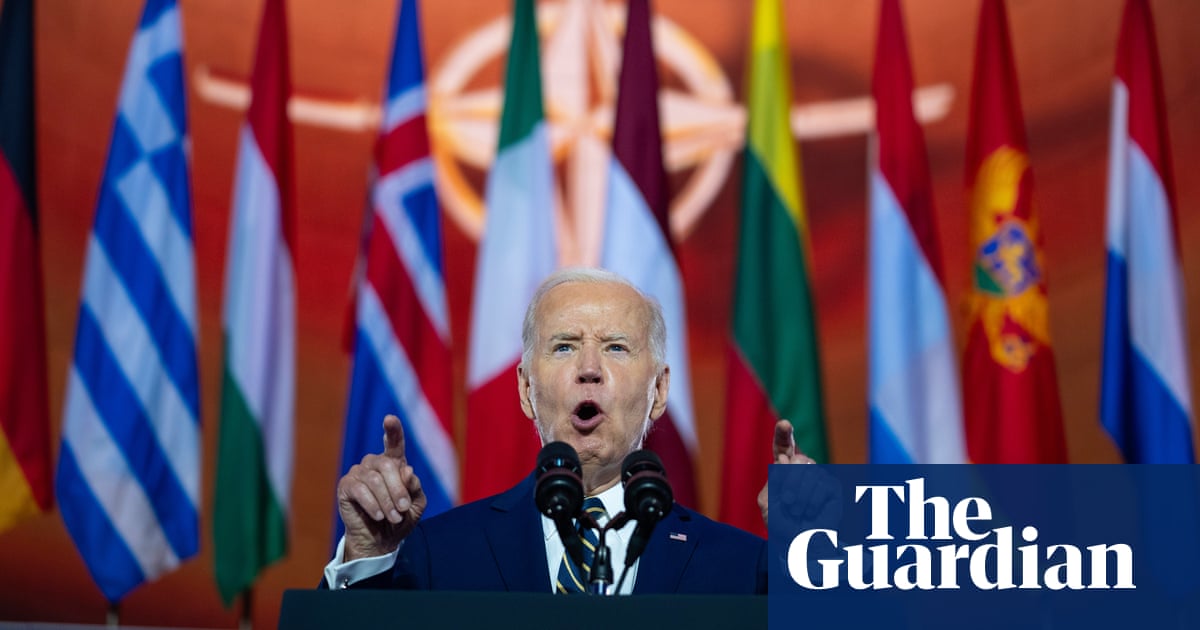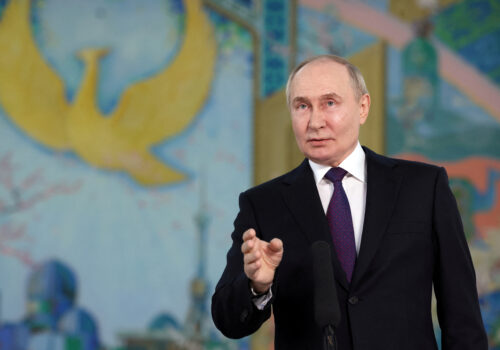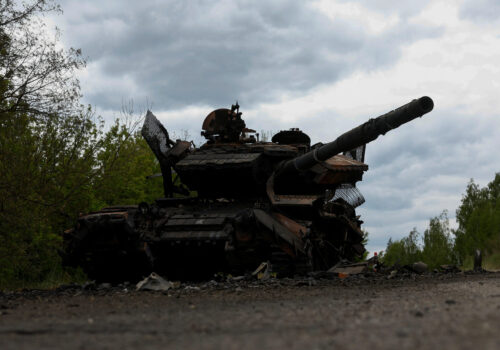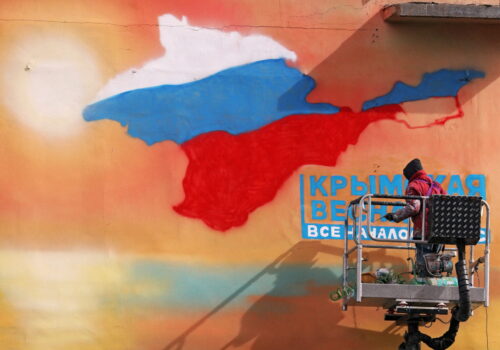Category: Michael Novakhov’s favorite articles
Category Added in a WPeMatico Campaign
A New York-based neurologist who specializes in treating Parkinson’s disease suggested Monday that President Biden is exhibiting “classic features of neurodegeneration” as speculation swirls about his political future.
Dr. Tom Pitts made his assessment based on Biden’s public appearances, while the White House faced questions about why another Parkinson’s expert visited the executive mansion eight times in an eight-month stretch last year and early this year.
“I could have diagnosed him from across the mall,” Pitts told NBC News Now’s “Top Story with Tom Llamas.”
President Biden got a fairly clean bill of health from his doctor, but critics are calling for more information. Getty Images
“I’m a Democrat, it’s just like — this guy is not a hard case,” he added.
“I see him 20 times a day in clinic.”
“He has the classic features of neurodegeneration, word-finding difficulties, and that’s not, ‘Oh, I couldn’t find the word,’ that’s from degeneration of the word retrieval area,” Pitts explained, referring to Biden.
The doctor also noted the president’s “shuffling gait … so little steps. Loss of arm swing from the rigidity…and end-block turning, meaning he kind of pivots around his foot.”
Pitts caveated that he has never been in the “same room” with the president, who has insisted he will carry on with his re-election campaign, and could not judge whether Biden’s cognitive abilities had diminished.
Over the weekend, The Post scooped that Biden physician Dr. Kevin O’Connor met with Dr. Kevin Cannard, the White House medical unit’s neurology consultant, back in January.
A subsequent check of visitor logs revealed Cannard had visited the executive mansion eight times between July of last year and March of this year.
Dr. Tom Pitts caveated that he hasn’t diagnosed President Biden in person. NBC News
Late Monday, O’Connor acknowledged that Cannard had examined Biden as part of his annual physicals, but claimed the doctor had not seen the president outside of those occasions.
White House press secretary Karine Jean-Pierre claimed Tuesday that the January meeting involving Cannard and O’Connor “was not” about Biden’s health.
Pitts called on both Biden, 81, and former President Donald Trump, 78, to take a four-hour neurological test, which he called the “hallmark test for cognitive performance.”
President Biden insists that he is mentally fit for the job. AP
Despite his party preference, Pitts conceded that he was frustrated with the situation, likening the Biden administration to regimes of North Korea and Russia in terms of denying obviously realities.
The White House did not immediately respond to a request for comment.

Joe Biden has announced that Nato countries will provide Ukraine with five new strategic air defense systems as leaders began a summit in Washington where the alliance was expected to declare Ukraine’s path toward Nato to be “irreversible”.
The promise of weapons deliveries, including anti-air defenses sought after by Ukrainian president Volodymyr Zelenskiy, came just a day after a deadly missile strike against a paediatric cancer hospital and other civilian targets in Ukraine that Biden called a “horrific reminder of Russia’s brutality”.
“All told, Ukraine will receive hundreds of additional interceptors over the next year, helping protect Ukrainian cities against Russian missiles and Ukrainian troops facing their attacks on the frontlines,” said Biden.
The headline speech was a critical step to convincing foreign leaders that Biden, 81, remains up to the task of leading the 32-member military alliance. It was also a key test in saving his presidential campaign following a disastrous debate against Donald Trump that led many in his own party to question his mental acuity.
In forceful tones, Biden said: “Before this war, Putin thought Nato would break. Today, Nato is stronger than it’s ever been in its history. When this senseless war began, Ukraine was a free country. Today it’s still a free country and the war will end with Ukraine remaining a free and independent country.”
“Russia will not prevail,” he said to rising applause. “Ukraine will prevail.”
In a speech later in the night, Zelenskiy urged US political leaders not to wait for the outcome of November’s presidential election to move forcefully to aid his country.
“Everyone is waiting for November. Americans are waiting for November, in Europe, Middle East, in the Pacific, the whole world is looking towards November and, truly speaking, Putin awaits November too.
“It is time to step out of the shadows, to make strong decisions … to act and not to wait for November or any other month,” Zelenskiy said.
It was announced on Tuesday that the US and its European allies would act to bolster Ukraine’s air defences at a time when the country is under constant heavy bombardment from Russia.
The US, Germany and Romania would send additional batteries of the Patriot air defence system while Patriot components donated by the Netherlands would enable another battery to operate, according to a statement by the leaders of the US, the Netherlands, Germany, Italy and Romania.
The Italian prime minister, Giorgia Meloni, approved the donation of a Italian-French-made equivalent of the Patriot interceptor, the SAMP/T air defence system.
“These five strategic air defence systems will help to protect Ukrainian cities, civilians, and soldiers, and we are coordinating closely with the Ukrainian government so that these systems can be utilised rapidly,” the statement said. “We are working on a further announcement this year of additional strategic air defence systems for Ukraine.”
As well the medium range Patriot and SAMP/T systems, the US and its allies said they would provide Ukraine with dozens of shorter-range tactical systems, including the US-Norwegian made NASAMS, US-made Hawks, Iris systems made by a European consortium and German Gepard missiles.
Britain’s new prime minister, Keir Starmer, and Zelenskiy, were among those arriving at the US capital amid a warning that Russia could step up missile strikes on Ukraine this week, repeating a barrage that killed at least 38 on Monday.
Diplomats said that a final communique would probably declare Ukraine’s path to Nato to be “irreversible” and to move control of the Ukraine Defense Contact Group, the main conduit for delivering military aid and training to Ukraine, under Nato control.
Those steps are widely seen as an attempt to “Trump-proof” Nato policies from the potential for a new Republican administration to cut aid to Ukraine, or possibly to make it contingent on holding direct negotiations with Russia.
skip past newsletter promotion
Sign up to First Thing
Our US morning briefing breaks down the key stories of the day, telling you what’s happening and why it matters
Privacy Notice: Newsletters may contain info about charities, online ads, and content funded by outside parties. For more information see our Privacy Policy. We use Google reCaptcha to protect our website and the Google Privacy Policy and Terms of Service apply.
after newsletter promotion
Despite the communique, there will be no meaningful progress on Ukraine joining Nato in Washington, although alliance members will seek to dress up the latest package of support as part of what is described as “a bridge to membership”.
Holdouts including the US, Hungary, Germany and Italy are concerned that allowing Ukraine to join Nato while the war with Russia continues would be considered an escalation that could bring the alliance into direct conflict with Moscow. Even a more limited form of what could be considered direct military intervention in support of Kyiv attracts similar concerns.
On Tuesday, Zelenskiy said he hoped Trump would not quit Nato and would keep supporting Ukraine, if he won in November, but he could not predict the former president’s actions.
“I can’t tell you what he will do, if he will be the president of the United States. I don’t know,” he said.
Jens Stoltenberg, Nato’s outgoing secretary general, speaking immediately before Biden, sought to justify continued US and western support for Ukraine by arguing that “the biggest cost and the greatest risk will be if Russia wins in Ukraine”. Authoritarian leaders in China, North Korea and Iran would all feel emboldened if Russia conquered its neighbour, he added, describing the war as a struggle over values.
“They all support Russia’s brutal war. They all want Nato to fail. So the outcome of this war will shape global security for decades to come. The time to stand for freedom and democracy is now the place is Ukraine,” the Nato chief added. Biden subsequently awarded Stoltenberg, the presidential medal of freedom, the highest civilian honour in the US.
In remarks to the Guardian, Ruslan Stefanchuk, Chairman of the Verkhovna Rada of Ukraine, said that the strike on the Okhmatdyt children’s hospital should be a “turning point” in the war and lead to great supplies of anti-air weapons to Ukraine.
“I believe that what happened today must be a turning point to change everyone’s attitude to what is happening in Ukraine, and I believe that without the F-16 fighter jets, without the new air defence systems, without the ammunition for those systems, we won’t be able to cover the skies to defend Ukraine,” he said.
Elsewhere at the summit, several high-ranking European officials have met with a top foreign policy adviser to Donald Trump.
Keith Kellogg, a retired lieutenant general who served as the chief of staff to Trump’s national security council, told Reuters he had met several European officials in recent days, including foreign ministers, but did not disclose their identities.
Kellogg, who is in regular contact with Trump, has emphasised that he does not speak for the former president nor his campaign.
Almost two and a half years since the start of Russia’s full-scale invasion, the Kremlin still retains the ability to shock with the scale of its crimes. On June 8, the targets were Ukrainian children. Not just any children, but kids being treated for cancer, whose daily lives were already full of fear and pain.
The exact number of dead and wounded as a result of Russia’s targeted missile strike on the Okhmatdyt Children’s Hospital in central Kyiv has not yet been confirmed. Nor is it possible to calculate the death and suffering that will result from lack of treatment due to the partial destruction of what is Ukraine’s biggest pediatric clinic.
In the immediate aftermath of the attack, large numbers of distressed and in some cases injured children lined the pavement around the ruins of the wrecked hospital, many still attached to drips. Providing them with the specialized medical support they so urgently require will now be extremely difficult.
Doctors were also among the victims. Those killed in Monday’s missile strikes included thirty year old Svitlana Lukyanchuk, a nephrologist from Lviv. Svitlana was an orphan who overcame challenging personal circumstances to qualify as a doctor. She dedicated herself to saving children’s lives, but will never now experience the joy of motherhood herself.
Okhmatdyt Children’s Hospital was one of three separate Ukrainian medical facilities to be struck by Russian missiles on July 8. One such attack could potentially be attributed to human error or explained as a tragic mistake. Three targeted attacks on the same day suggests a deliberate Russian strategy to destroy Ukraine’s healthcare infrastructure, just as the Kremlin has already targeted and destroyed much of Ukraine’s civilian energy infrastructure. Moscow appears intent on making large parts of the country unlivable.
Stay updated
As the world watches the Russian invasion of Ukraine unfold, UkraineAlert delivers the best Atlantic Council expert insight and analysis on Ukraine twice a week directly to your inbox.
It is no doubt hard for many outside observers to fully appreciate that such horrors are taking place in the heart of twenty-first century Europe. After all, just three years ago, it would also have been difficult for most Ukrainians to believe such things were possible. Sadly, that is no longer the case.
As a result of Russia’s February 2022 invasion, Ukrainians have been confronted by an astonishing array of war crimes that recall the worst excesses of bygone eras. Entire cities have been reduced to rubble. Hundreds of thousands have been killed, abducted, or subjected to forced deportation. Large numbers of vulnerable children have been sent to Russian indoctrination camps and robbed of their Ukrainian heritage. In regions of Ukraine under Kremlin control, all traces of Ukrainian identity have been ruthlessly erased.
The evidence of Russian war crimes is now so overwhelming that the International Criminal Court in The Hague has issued arrest warrants for Vladimir Putin himself and many of his most senior officials. Nevertheless, the nightmare continues. A genocide is being live-streamed to the watching world, but Western leaders choose not to call it by its name for fear of being obliged to act.
Today’s Russia did not become a rogue regime overnight. On the contrary, the crimes we are now witnessing reflect unresolved historic issues that have been allowed to fester since the early days of Putin’s reign. Unlike all other European empires, post-Soviet Russia never rejected imperialism and was not forced to confront the crimes of the imperial era. This has allowed for a revival of Russia’s imperial identity and has helped fuel a sense of impunity that directly paved the way for the invasion of Ukraine.
Rather than address the growing threat posed by Putin’s Russia, the Western world has consistently sought to avoid confrontation. When a newly anointed Putin crushed Chechnya, Western leaders chose to look the other way. After he invaded Georgia, they scrambled to reset relations and return to business as usual.
Inevitably, this approach only emboldened the Kremlin. The West’s weak response to the 2014 seizure of Crimea led directly to Russian military intervention in eastern Ukraine. When this, too, failed to produce a decisive reaction, the stage was set for today’s full-scale invasion.
Even now, Western policy remains defined by a reluctance to provoke Putin, with Western leaders hopelessly preoccupied by fears of escalation. This has left Ukraine unable to adequately defend itself, while encouraging Russia to escalate further. As a result, we are now closer to a major global war than at any time for a generation.
It is delusional to think Russia can be stopped by appeasement, concessions, or compromise. Any ceasefire would merely provide the Kremlin with a pause to rearm before resuming the campaign to wipe Ukraine off the map entirely.
Nor are Putin’s imperial ambitions limited to Ukraine alone. He has repeatedly portrayed the invasion of Ukraine as part of a sacred mission to correct the historical injustice of the Soviet collapse and “return” historically Russian lands. If Putin achieves his goals in Ukraine, he will inevitably look to press home his advantage and “reclaim” other countries that were once part of the Russian Empire. The list of potential targets is long and includes Finland, Poland, the Baltic States, Belarus, and Moldova. The only way to guarantee their security is by defeating Russia in Ukraine.
Western leaders now have a simple choice: They can provide Ukraine with the support necessary to defeat Russia, or they can prepare to face the Russians themselves in the near future. With every day of delay, the cost of stopping Putin grows. At the moment, it is the Ukrainians alone who are paying this terrible price. However, until Russia is beaten, nobody in the West can take their security for granted. Instead, the threat will only increase.
Ten years ago when the Russian invasion of Ukraine first began, a cautious Putin deployed Russian soldiers without identifying insignia in an attempt to mask his aggressive actions. A decade later, he is now bombing children’s hospitals in the center of a European capital city while his priests and propagandists preach holy war against the West. Clearly, he will not stop until he is stopped.
Vladimir Putin represents the greatest threat to European peace since Adolf Hitler. Today’s generation of Western leaders should recall the lessons of that earlier era before it is too late. They must reject the appeasement of the 1930s and embrace the mantra of “never again” that rose from the ashes of World War II. Until that happens, the Kremlin’s crimes will continue to escalate.
Serhiy Prytula is a Ukrainian volunteer fundraiser and founder of the Prytula Charity Foundation.
Further reading
The views expressed in UkraineAlert are solely those of the authors and do not necessarily reflect the views of the Atlantic Council, its staff, or its supporters.

The Eurasia Center’s mission is to enhance transatlantic cooperation in promoting stability, democratic values and prosperity in Eurasia, from Eastern Europe and Turkey in the West to the Caucasus, Russia and Central Asia in the East.
Follow us on social media
and support our work
The post The Kremlin’s crimes will continue to escalate until Russia is defeated appeared first on Atlantic Council.
#BREAKING Director of US National Intelligence @ODNIgov has warned that Iran is increasingly seeking to undermine confidence in US democratic institutions through cyber activities and financial support for protests, urging Americans to remain “vigilant”.https://t.co/be4HjrEWeS pic.twitter.com/a9x2PMTyqK
— Iran International English (@IranIntl_En) July 9, 2024
#DYK the National Counterintelligence Task Force leverages the authorities and operational capabilities of the U.S. Intelligence Community across federal, state, and local law enforcement. Learn more about this partnership at: https://t.co/VTHsxIeF7w. pic.twitter.com/E2cdwRYb4a
— FBI (@FBI) July 9, 2024
Officials say the AI-enabled campaign to spread pro-Kremlin propaganda involved 1,000 social media accounts
The US Department of Justice said on Tuesday that it disrupted a Russian operation that used fake social media accounts enhanced by artificial intelligence to covertly spread pro-Kremlin messages in the United States and abroad.
The news comes four months before the US presidential election, which security experts widely believe will be the target of both hacking and covert social media influence attempts by foreign adversaries. Senior US officials have said publicly they are monitoring for schemes intended to disrupt the vote.







